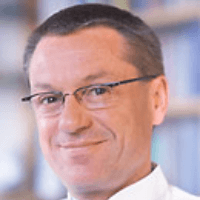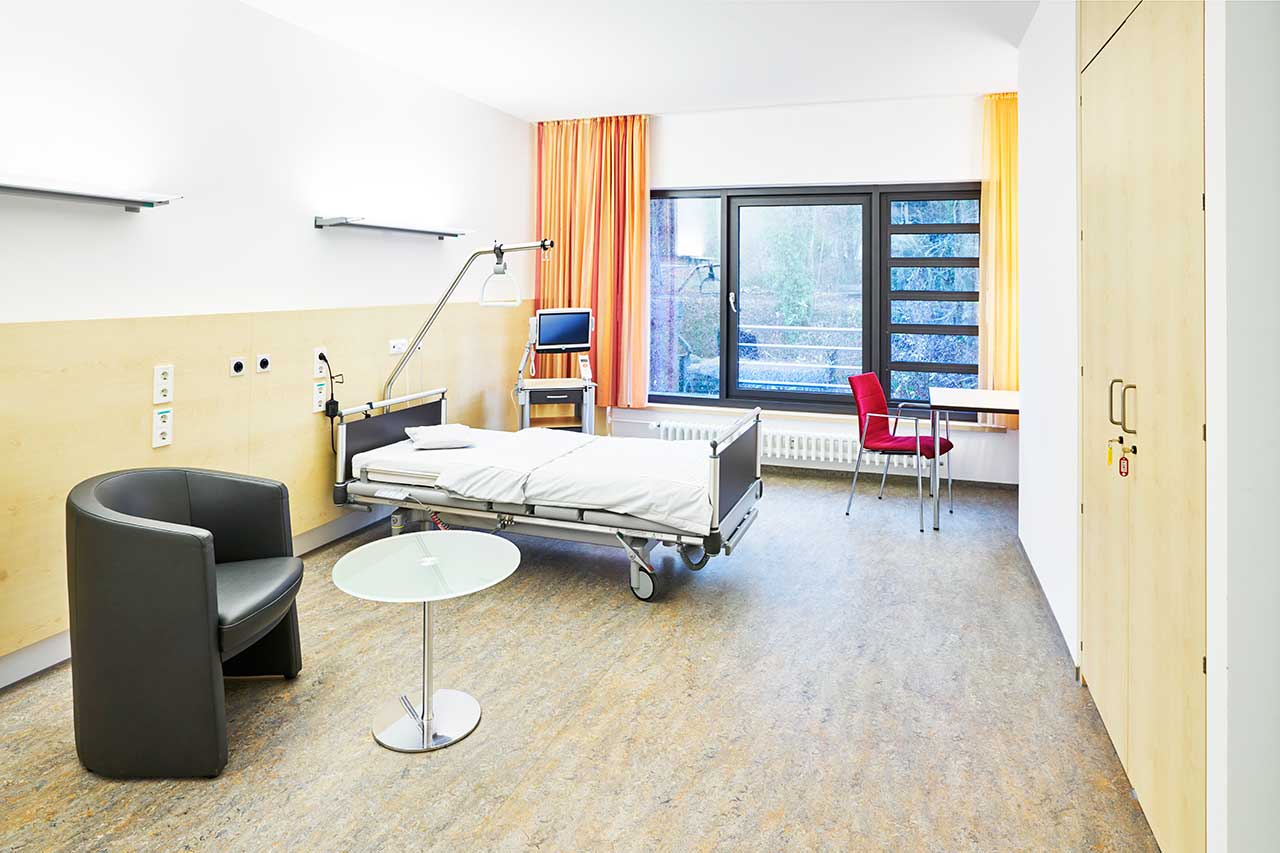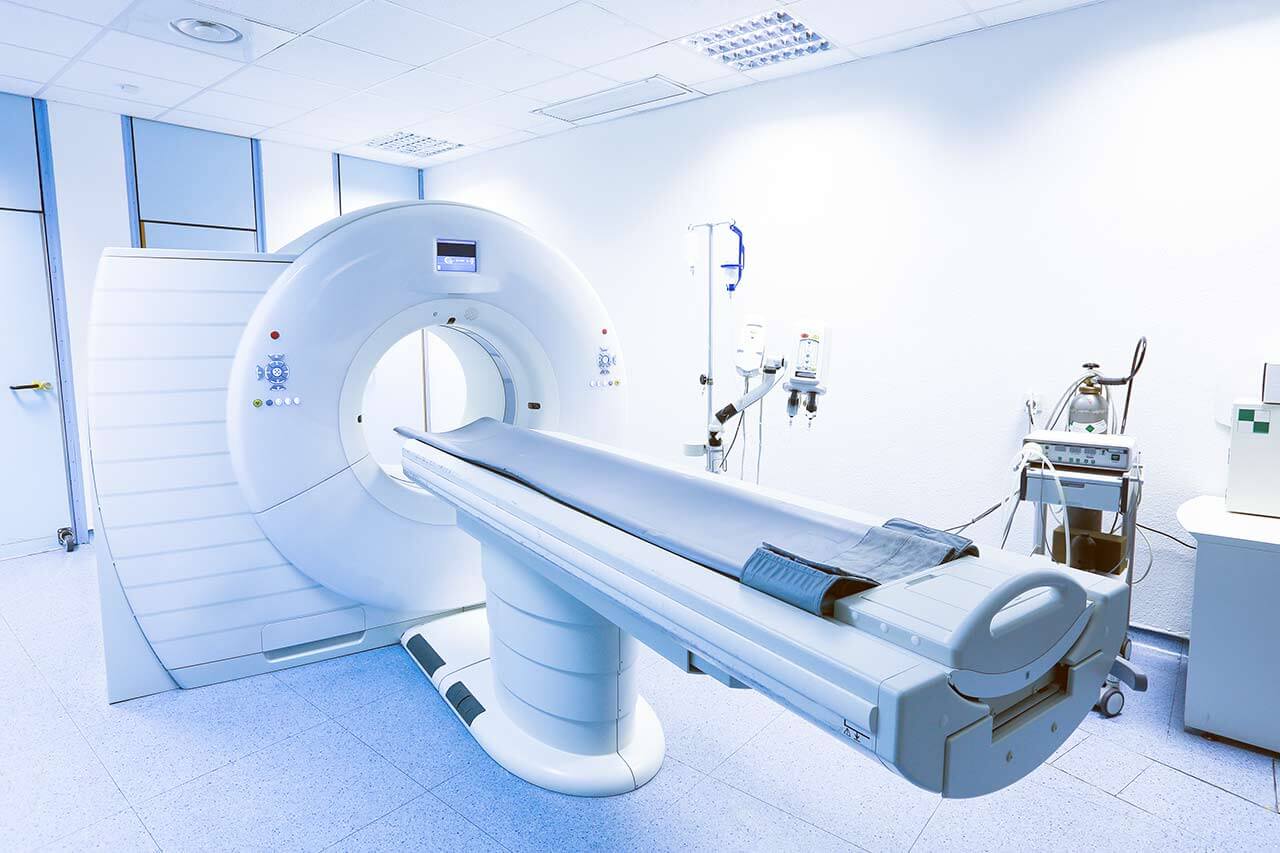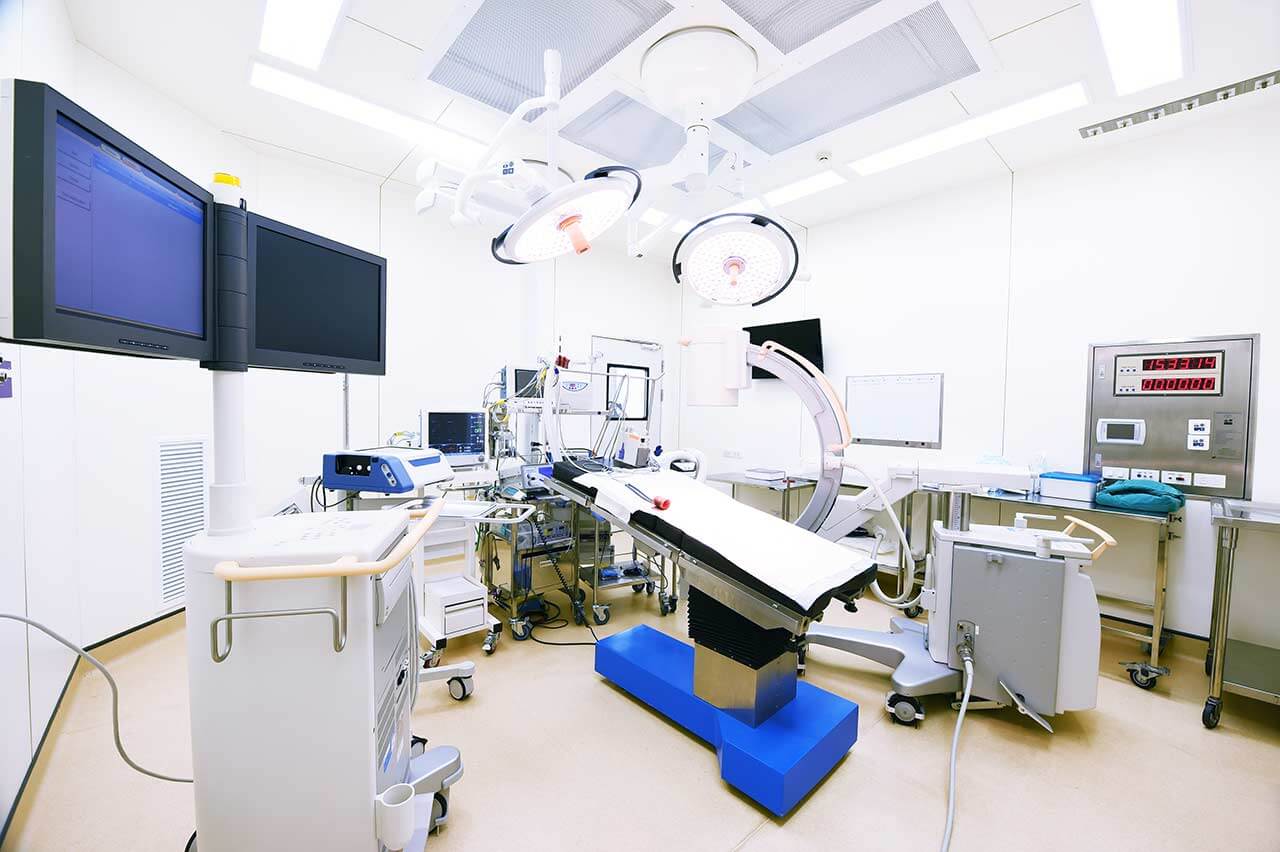
The program includes:
- Initial presentation in the clinic
- clinical history taking
- review of medical records
- cardiological examination
- physical examination
- laboratory tests:
- complete blood count
- general urine analysis
- biochemical analysis of blood
- TSH-basal
- inflammation indicators
- indicators blood coagulation
- measurement of arterial blood pressure
- electrocardiogram
- holter monitoring (24h)
- echocardiography
- preoperative care
- surgical treatment of total anomalous pulmonary
venous connection (TAPVC) - symptomatic treatment
- control examinations
- cost of essential medicines and materials
- nursing services
- full hospital accommodation
- explanation of future recommendations
Required documents
- Medical records
- Echocardiography (if available)
Service
You may also book:
 BookingHealth Price from:
BookingHealth Price from:
About the department
According to the Focus magazine, the Department of Cardiac Surgery and Heart Transplantation at the University Hospital Erlangen ranks among the top German departments specializing in heart interventions!
The department offers the full range of surgical treatment for cardiac pathologies of varying severity. A large number of the operations performed in the department are coronary artery bypass grafting and heart valve interventions, which are most often performed using minimally invasive techniques. The team of the department's surgeons is proud of their high success rates in surgical treatment and the prestigious quality certificates of the German Cardiac Society in the field of transcatheter aortic valve implantation (TAVI) and heart failure treatment. In addition, the medical facility enjoys the status of one of the best in the international medical arena for heart transplantation and the implantation of mechanical hemodynamic heart support systems. The department provides medical care in accordance with the very latest standards and offers the highest possible safety for patients. The surgical treatment is accurately planned and, if possible, operations are performed using sparing surgical techniques, without thoracotomy.
The department is headed by Prof. Dr. med. Michael Weyand. The cardiac surgeon has more than 26 years of successful clinical experience and brilliantly performs even the most complex cardiac interventions, returning patients with severe heart pathologies to a full life.
The department performs about 1,600 operations on the heart and large vessels annually. About 1,100 of these operations are performed with the use of a heart-lung machine, on an open heart. The surgical interventions are performed in 3 operating rooms equipped with state-of-the-art technology. A team of surgeons is always available in the department to provide around-the-clock emergency treatment of heart diseases.
The department's doctors perform heart surgeries using the very latest techniques to avoid blood transfusions. Whenever possible, the patient's own blood is collected before surgery. Special hemostatic medications are also used (for example, tranexamic acid). After the operation, the blood undergoes special treatment and is injected back to the patient, due to which about half of all interventions in the department are carried out without the use of donated blood.
Coronary artery bypass grafting is one of the most demanded heart interventions. The department's specialists regularly perform various types of coronary artery bypass grafting in patients with coronary heart disease, which develops due to the narrowing of the lumen of the coronary vessels and insufficient oxygen supply to the myocardium. Diagnostics based on electrocardiography and coronary angiography play a decisive role in the treatment success of a pathological condition. At the early stages of coronary heart disease, drug therapy or balloon dilatation is provided, and if, according to the results of the examination, the doctor confirms the advanced stage of the pathology, the only effective treatment method is coronary artery bypass grafting. The department uses various modifications of the surgical intervention, including minimally invasive one and without the use of a heart-lung machine, but the classical version of the operation is still the most common. The operation is performed under general anesthesia, using a heart-lung machine and thoracotomy. The essence of the intervention is to restore blood flow in the coronary arteries by bypassing the area of vasoconstriction with an autologous graft. The material for grafts is taken from the internal thoracic artery, radial artery, or great saphenous vein of the lower limb. The duration of the intervention is about 3-4 hours. After coronary artery bypass grafting, the patient requires cardiac rehabilitation to fully recover.
Heart valve interventions are also within the department's competence. The medical facility deals with the treatment of both congenital and acquired diseases of this spectrum, while aortic and mitral valve pathologies are most common. The department's surgeons successfully correct stenosis and heart valve insufficiency, including combined defects (simultaneous damage to several heart valves). The key diagnostic methods are echocardiography (heart ultrasound) and cardiac catheter examination. Should the diagnosis be confirmed, depending on the degree of damage to the valve, a decision is made on the optimal type of surgical intervention – valve reconstruction or replacement. To replace the valve, the department's cardiac surgeons use mechanical and biological prostheses. Which prosthesis is best suited for a particular patient is determined by the attending surgeon, based on clinical data, the type of valve defect, the patient's age and the presence of comorbidities. Each of the prostheses has its own advantages: the service life of a mechanical prosthesis is practically unlimited, but a patient with an artificial valve will have to take anticoagulants for life; the service life of the biological valve is no more than 15 years, after which it has to be replaced, but after the implantation of this type of prosthesis, there is no need to take anticoagulants. Today, the department's team of surgeons performs effective minimally invasive operations to correct heart valve defects, which do not require thoracotomy. Due to this, the risks of developing postoperative complications are practically close to zero, and the patient's recovery after the intervention occurs as soon as possible. The most common of these are transcatheter aortic valve implantation (TAVI) and the MitraClip procedure for mitral valve insufficiency.
Another leading area of work of the department's doctors is heart transplantation. Such operations are performed only in progressive medical facilities with an advanced level of technical equipment and highly qualified cardiac surgeons. The main indication for a heart transplantation is a severe form of heart failure, which cannot be corrected with other therapeutic methods, and which poses a danger to human life. Obviously, before such a serious operation, not only the heart is examined, but also the whole body of the patient. If, during an interdisciplinary board, the department's specialists come to the conclusion that a patient is a candidate for an intervention, he is registered in the Eurotransplant program. The patient then officially becomes a donor heart candidate and is placed on the waiting list for heart transplantation. It usually takes several months to find a suitable donor organ. Heart transplantation is performed using a heart-lung machine and thoracotomy. After the intervention, the patient stays in the department, under constant monitoring of medical personnel, and receives the necessary drug therapy to prevent transplant rejection. The patient then undergoes cardiac rehabilitation and regular examinations to monitor the condition of the new heart.
The department's range of medical services includes:
- Coronary artery bypass grafting (including minimally invasive techniques and beating heart surgery)
- Classical heart valve surgery (implantation of mechanical and biological valve prostheses)
- Minimally invasive heart valve surgery
- Heart valve interventional procedures on a beating heart
- Surgical treatment of thoracic aortic aneurysms
- Implantation of mechanical heart support systems (artificial heart)
- Heart transplantation
- Pacemaker implantation
- Defibrillator implantation
- Treatment of congenital heart defects in adults
- Other therapeutic options
Curriculum vitae
Prof. Dr. med. Michael Weyand is the Head of the Department of Cardiac Surgery and Heart Transplantation at the University Hospital Erlangen. The specialist has over 26 years of successful clinical experience in the field of heart surgery of varying degrees of complexity. The cardiac surgeon is a member of the German and European Societies of Cardiology. His clinical interests include coronary artery bypass grafting, minimally invasive heart valve surgery, heart transplantation, implantation of pacemakers and defibrillators. Prof. Michael Weyand and his team perform more than 1,600 heart interventions every year, so he has unique skills and a wealth of experience.
The doctor studied Human Medicine at the Faculty of Medicine at the Christian-Albrecht University of Kiel (1977-1984). This was followed by work in the district hospital in Preetz. From 1985 to 1991, Prof. Weyand was a physician in the Department of Cardiac Surgery at the University Hospital Kiel. In 1991, the doctor completed his board certification in surgery, after which he held the post of surgeon in the Department of Cardiothoracic Surgery at the hospital in Muenster. In 1993 he was appointed as Deputy Head of the same department. In 1995, Dr. Michael Weyand had his habilitation procedure (research work on infectious diseases in patients with artificial hearts) and received C4 Professorship in Cardiac Surgery. In 1999, the specialist became the Head of the Department of Cardiac Surgery and Heart Transplantation at the University Hospital Erlangen.
Photo of the doctor: (c) Universitätsklinikum Erlangen
About hospital
According to the Focus magazine, University Hospital Erlangen ranks among the best medical facilities in Germany!
The hospital is one of the leading healthcare facilities in Bavaria and offers top-class medical care distinguished by the close intertwining of clinical activities with research and training of medical students. The hospital was founded in 1815 and today is proud of its rich traditions, numerous medical achievements and an excellent reputation not only in Germany, but also in the international arena. The hospital has 25 specialized departments, 7 institutes and 41 interdisciplinary centers, whose experts work tirelessly for the benefit of their patients.
The hospital has the status of a maximum care center, and therefore it represents almost all fields of modern medicine. Oncology, transplant medicine, and robot-assisted surgery are among the top priorities of the clinical activities of the medical complex. Oncology is represented by the Comprehensive Cancer Center Erlangen, which is one of 13 centers of excellence in Germany certified by the German Cancer Society. The university hospital has a high-tech center with high success rates for heart, liver, kidney, pancreas, cornea and bone marrow transplants. In addition, the hospital is a leader in the use of robot-assisted surgery. The medical facility has at its disposal innovative robotic technologies, in particular the da Vinci Surgical System, with the help of which surgeons perform many sparing interventions in various medical fields.
The medical team of the hospital consists of highly professional therapists, surgeons and nursing staff. The focus of their efforts is on the patient, his health and peace of mind, as well as comfort during treatment. The clinical practice of doctors is based on an individual approach to each case, which results in high treatment success rates. State-of-the-art technical equipment also plays an important role in the therapeutic process. The hospital is proud of the most advanced devices for imaging diagnostics (X-ray, ultrasound, CT, MRI, PET-CT, SPECT-CT, etc.), endoscopic examinations, laboratory tests, as well as specially equipped operating rooms for robot-assisted interventions, image-guided therapeutic manipulations, minimally invasive and classical surgeries of any complexity. Thus, the doctors of the university hospital have all the necessary resources to effectively treat the most severe pathologies and save lives.
The combination of high-tech equipment, experienced and highly qualified personnel, as well as strict adherence to the standards of modern medicine, form a solid foundation for the provision of the best medical care at the European level. An undeniable proof of the high prestige of the hospital is the constantly growing number of patients who come here from various regions of Germany and other countries of the world.
Photo: (с) depositphotos
Accommodation in hospital
Patients rooms
The patients of the University Hospital Erlangen live in comfortable rooms with light colors and modern design. Each patient room has an ensuite bathroom with shower and toilet. The furnishing of the patient room includes an automatically adjustable bed with an orthopedic mattress, a bedside table, a wardrobe, a table and chairs for receiving visitors, a TV, a radio and a telephone. Wi-Fi can be provided upon request. The use of a mobile phone is prohibited in many rooms of the hospital.
Patients can also live in enhanced-comfort rooms with a more sophisticated design. The enhanced-comfort rooms additionally include upholstered furniture, a minifridge and a safe.
Meals and Menus
The hospital offers healthy and tasty food distinguished by many awards, including the 1st place in the prestigious ESSEN PRO GESUNDHEIT competition of the Bavarian State Ministry of the Environment and Consumer Protection.
The patient and the accompanying person have three meals a day. Breakfast is served buffet style: scrambled eggs, boiled eggs, sausage, cheese, bread and buns with butter and jam, cereals, etc. There are three set menus for lunch and dinner to choose from: a classic menu featuring local cuisine dishes, a Mediterranean menu and a vegetarian menu.
If for some reason you do not eat all the foods, you will be offered an individual menu. Please inform the medical staff about your dietary preferences prior to the treatment.
The hospital also houses many cafeterias, which will delight with a wide range of delicious dishes and drinks.
Further details
Standard rooms include:
Religion
The hospital regularly hosts catholic and evangelical devine services. The services of representatives of other religions are available upon request.
Accompanying person
During an inpatient program, an accompanying person can stay with you in the patient room or in a hotel of your choice.
Hotel
During an outpatient program, you can stay in a hotel of your choice. The managers will help you choose the most suitable options.




